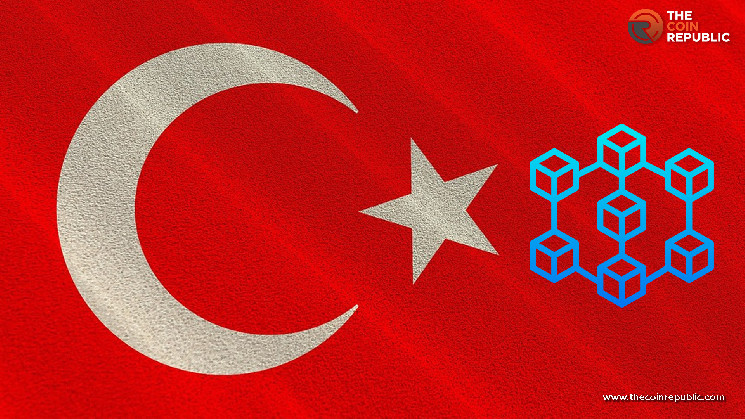Blockchain is a revolutionary technology with great real-world examples; cryptocurrency is just a part of the technology. Turkey plans to deploy this blockchain technology during the login process for online public services. This will provide a very robust level of security and anonymity simultaneously.
E-Devlet, the digital government portal of Turkey, will use blockchain-based digital identity in a wide range of public access and verify the Turkish citizens during the login process.
Vice President of Turkey, Fuar Oktay, during the Digital Turkey 2023 event announced that citizens will now be able to use blockchain-based digital identity to access e-wallet applications. As reported by the media.
Fuar called the blockchain-based application a revolution in their e-governance efforts and said that the online services post application would be more accessible and secure with blockchain. And users will now be able to keep their digital information on their mobile phones.
The Vice President said,
“With the login system that will work within the scope of the e-wallet application, our citizens will be able to enter the e-Devlet with a digital identity created in the blockchain network.”
Turkey has been very active in announcing many blockchain-based projects over the years, but very few have come to fruition. The country announced the plan in 2019 for a national blockchain infrastructure.
However, few proof-of-concept projects and its Central Bank Digital Currency’s (CBDCs) test were executed after many delays. Altogether their blockchain ambitions are yet to bear fruits.
Turkey’s cultural hub of Konya was developing the “City Coin” project, which citizens used to pay for public services. Still, no further updates have been shared with the public since January 2020.
Other Blockchain Applications
Blockchain provides infinite applications; NFTs, Metaverse, and Web3 all work on blockchain. The considerable application includes deploying the technology for unique ids for citizens; these ids would be secure, non-alterable, and help deal with illegal immigration problems.
Only citizens with this unique id would be granted medical and socio-economic benefits, curtailing the expenses on pseudo-citizens, thus curbing corruption.
Smart contracts can also help in getting quicker returns from insurance companies. Suppose a frequent flier opts for flight delay insurance equipped with a smart contract. If the mentioned time limit delays the flight, the condition for releasing compensated funds will automatically be executed. The flier will receive the funds in the account before landing.
Results of the university and other important examinations can be uploaded using this technology; this will eliminate the possibility of any alteration by anyone, ensuring authenticity.
Medical records if uploaded via this blockchain technology, then anonymity of the patient is secures, plus the fear of any alteration that could cost patient’s life is completey avoided.
There are many more applications; some are being applied, while others are yet to be considered and applied. Blockchain technology has immense potential.
 thecoinrepublic.com
thecoinrepublic.com
